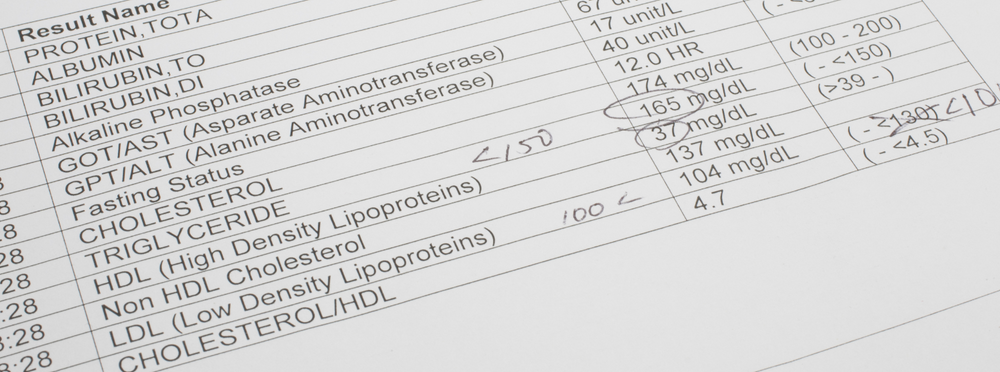Understanding Cholesterol: What Everyone Gets Wrong

September is Cholesterol Awareness Month, and it’s a good time to set the record straight. Few topics in medicine spark more confusion than cholesterol. Some people dismiss it as a myth, others believe it’s the sole cause of heart disease.
The truth lies in between. Cholesterol is real, it matters, and the way we understand it can have a profound impact on cardiometabolic health.
Myth 1: All cholesterol is bad
Cholesterol itself isn’t harmful. In fact, your body needs it to build cell membranes, produce hormones, and aid in digestion. What matters most isn’t whether cholesterol is present, but how it’s carried in your bloodstream.
LDL (low-density lipoprotein) cholesterol can contribute to plaque buildup in arteries if levels are too high.
HDL (high-density lipoprotein) cholesterol helps remove excess cholesterol from the bloodstream.
Although the balance matters, your LDL level is probably the most important value when it comes to avoiding heart disease. The lower your LDL, the lower your risk for cardiovascular events. In fact, data from multiple randomized controlled trials show that populations with lower LDL levels consistently experience fewer cardiovascular events.
Myth 2: Cholesterol is a “myth”
At Step One, I sometimes hear from people who insist cholesterol doesn’t matter, or worse, that it isn’t even “real.” Nothing could be further from the truth. High cholesterol is one of the most extensively studied risk factors for cardiovascular disease, with incredibly consistent results: lower LDL levels translate to better outcomes, no matter how you get there—through medications, diet, or favorable genetics.
There are even rare individuals who are genetically unable to make PCSK9, the enzyme that slows LDL receptor activity. Their LDL levels hover around 30 mg/dL for life. And they almost never get cardiovascular disease. That’s not myth—that’s biology.
Myth 3: Dietary cholesterol is the main cause of high cholesterol
For years, foods like eggs and shellfish were villainized for raising cholesterol. But dietary cholesterol has much less impact on blood cholesterol than most people think. Your liver produces the majority of cholesterol circulating in your body. What influences blood cholesterol more strongly is the type of fat (and types of carbohydrates) you eat.
Saturated and trans fats can raise LDL cholesterol. These fats are all solid at room temperature and include butter, cheese, the marbling in beef, the fat in chicken, coconut oil and all hydrogenated fats.
Unsaturated fats (found in foods like nuts, seeds, and olive oil) are liquid at room temperature and can help improve cholesterol levels.
The bigger picture: food has the power to harm and the power to heal. Poor nutrition doesn’t just raise LDL—it also drives up blood pressure, blood sugar, weight, and inflammation. Eat right, and you improve all of these risk factors at the same time.
Myth 4: Cholesterol is the only thing that matters
Cholesterol is important, but it isn’t the only player. Cardiovascular disease is multifactorial. High blood pressure, diabetes, smoking, chronic inflammation, and genetics all layer on top of cholesterol to influence risk. Even with high LDL, some people may avoid disease, while others with normal levels may still experience events.
This is why reductionist thinking—blaming everything on a single risk factor—misses the mark. Cholesterol matters, but so do the other pieces of the puzzle.
Myth 5: Medication is the only solution
Statins and other cholesterol-lowering drugs can be transformative for some people. But they’re also an incomplete solution, because they only target one factor. If you lower cholesterol through medication but ignore blood sugar, blood pressure, weight, or inflammation, your risk remains elevated.
Nutrition, on the other hand, is comprehensive. Eat poorly, and you worsen multiple risk factors at once. Eat well, and you lower LDL, improve blood pressure, stabilize blood sugar, reduce inflammation, and support healthy weight—all in one step.
The bottom line
Cholesterol is not a myth. It’s a proven, powerful risk factor for disease. But it’s also not the only one, and it shouldn’t be viewed in isolation. The good news is that food gives us an opportunity to improve cholesterol while simultaneously improving overall cardiometabolic health.
At Step One Foods, we’ve made it easier to take control of your nutrition with convenient options proven to help support cholesterol management.
About Step One Foods: Step One Foods offers convenient, scientifically-formulated foods clinically validated to rapidly reduce cholesterol and improve cardiometabolic health. Real food. Real results. Unapologetically delicious. Learn more at steponefoods.com.

Tested & Proven Results.
- Cardiologist formulated
- Supported by over 500 publications
- Clinically-proven, in a double-blind randomized trial with Mayo Clinic and The University of Manitoba
80% of participants lowered their cholesterol in just 30 days. With just two servings per day, Step One Foods offers a proven-effective way to naturally lower LDL (bad) cholesterol.
Get heart health tips and articles like this, delivered right to your email.
New articles every week.
You may also like...

The Most Misunderstood Heart Number (Plus Your Tune-Up Checklist)

You don’t need to avoid foods with cholesterol…except for these



